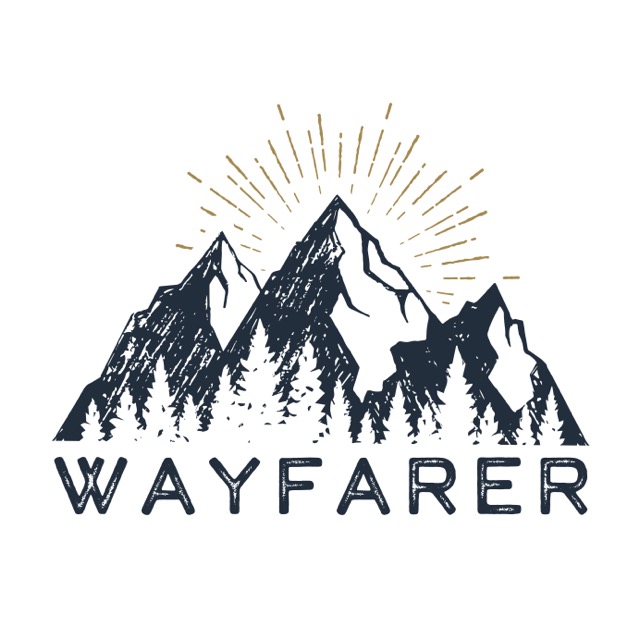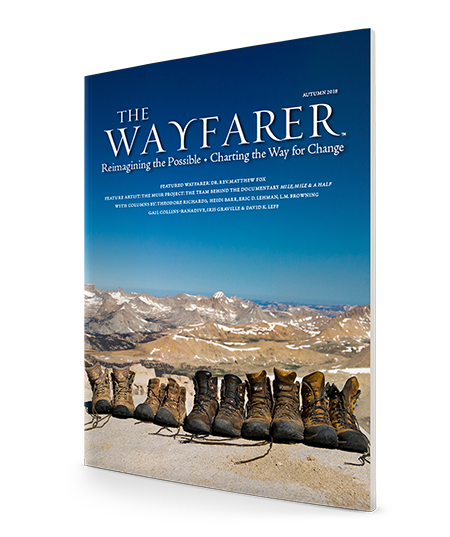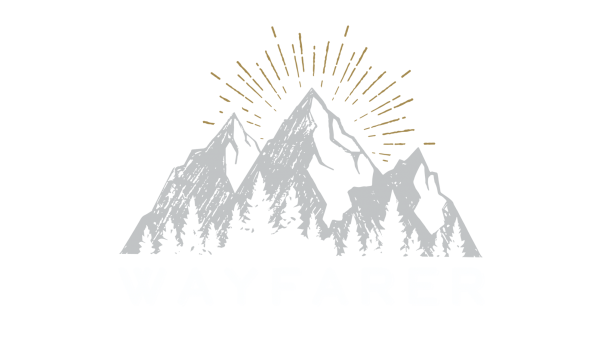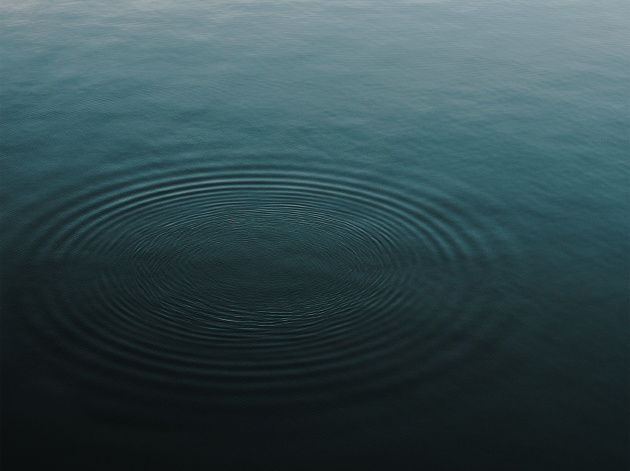
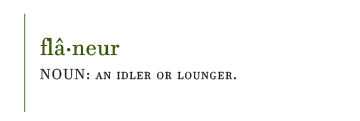
Attentive Idling
by Staff Writer Iris Graville
My compulsion to accomplish is fueled by a computer the size of the pack of cigarettes my mom used to slide into her purse. Portable devices allow us to learn foreign languages, listen to books, and attend lectures, all while we work out, make dinner, pull weeds, ride the bus, or wash dishes. Mine serves as my calendar, my watch, my address book, and my to-do list. Its podcasts accompany me on my walks with my dog.
Such current-day multi-tasking mania feeds my fears of sloth, conceived in my Midwest, Missouri Synod Lutheran upbringing. However, I don’t think I’m alone in my uneasiness with moments of seeming non-productivity. There’s so much in 21st Century American life that denies inherent value in meandering, sitting, or observing without hurry or efficiency.
I recall a day, though, when my workout with the dog stretched longer than usual, beyond the length of the hour-long program I typically listen to. Even after nearly forty years of sitting in silent Quaker meetings, I resisted the extra fifteen minutes of quiet near the trail’s end. With a quarter-mile to go before my trek returned me home, I pulled the buds out of my ears and stuffed my iPhone into my pocket. It felt like a courageous act.
Poet Julie Larios would approve of that act of courage. Julie is a Seattle writer who served as guest faculty in my MFA writing program some years ago. She commanded us to be attentive idlers. “The spiral of your attention is to find things that are connected to each other, that know each other,” Julie said. “Look for nothing, but notice everything.” There’s even a beautiful French term for people who do this kind of wandering and noticing—flâneur.
Julie’s words broke into my awareness when the podcaster’s voice ceased that day. I’ve covered the stretch of beach leading to my house thousands of times, but for an embarrassingly large number of them, I’ve failed to register the lick of the water, the whisper of the breeze through the sea grasses, the taunts of the eagles and crows, the palette of greens in the pines and blues in the bay, the pungent mustiness as my shoes slime across bundles of washed-up seaweed. If I’d scrolled to another episode on my playlist, had succumbed to the pull to achieve, I likely would have ignored them once again.
I’ve chosen to become a writer to open all my senses to puzzle out the world around me. I can’t do that very well if one or two of them are immersed in sounds or images beaming from the little box in my hand.
Just as it’s taken years of practice to become skilled at “reading” while I walk or typing messages as I wait to reach the check-out counter, it appears I need to dedicate time to, as Julie suggests, “letting life into” me. Here are a few of her suggestions:
- Take a walk that lasts all day.
- Walk around your office—for an hour. Look at everything.
- Sit in a café for eight hours and just watch.
Many of us (myself included) believe we can’t devote that much time to drifting, meandering, ambling, or observing but not necessarily making meaning. But now, more than ever, I want to welcome a bit of the flâneur into my life. It will require courage, I know, to idle attentively, but it seems like good practice for my writing and my spiritual journey. Maybe I’ll start by leaving my phone on the desk when my dog and I head for the beach.
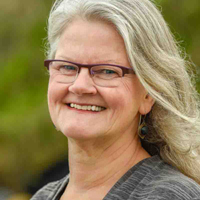
Iris Graville
Staff Writer
Iris Graville writes creative nonfiction from her home on Lopez Island, WA. She holds an MFA in writing from the Northwest Institute of Literary Arts and is the publisher of SHARK REEF Literary Magazine. Iris’ first book, Hands at Work, received several accolades, including a Nautilus Book Award. Her memoir, Hiking Naked—A Quaker Woman’s Search for Balance, was a finalist in the 2015 Pacific Northwest Writers Association Literary Contest and is now available wherever books are sold.
This is a selection from The Wayfarer’s Autumn 2018 issue.
Order the entire issue in either print or e-edition in our store.
The Wayfarer is a biannual magazine released in print and e-edition every spring and autumn. We publish a high-quality journal of literature and art that inspires and points the way for visionary-yet-practical change. By our definition, a “wayfarer” is a wanderer whose ability to re-imagine the possible provides the compass bearings for those on their way. The Wayfarer’s mission is to chart the way for change by building and empowering a community of contemplative voices. We seek to release a publication that builds and empowers a community of contemplative voices and serves as an agent for cultural transformation.
Subscribe to the Print Edition • Subscribe to the e-edition • Browse Featured Articles
To bring each issue of The Wayfarer to fruition, it takes hundreds of hours each season to craft, edit, design, and distribute the journal. If you find joy and enrichment within our features, please consider becoming a supporter with a small donation. There is no set amount. Whether it is .99 or a few dollars, we appreciate any gift you care to give. While at this time we are not a non-profit all donations do go towards ensuring the future of the journal.
Help us Empower Change by Giving a Little Change!
![]()
